The packed crowd in Lviv’s National Opera erupted in cheers as Ukraine’s Minister of Digital Transformation, Mykhailo Fedorov, delivered a speech highlighting a significant achievement for the country – Ukrainian drones had successfully destroyed over 200 tanks during the past few months.
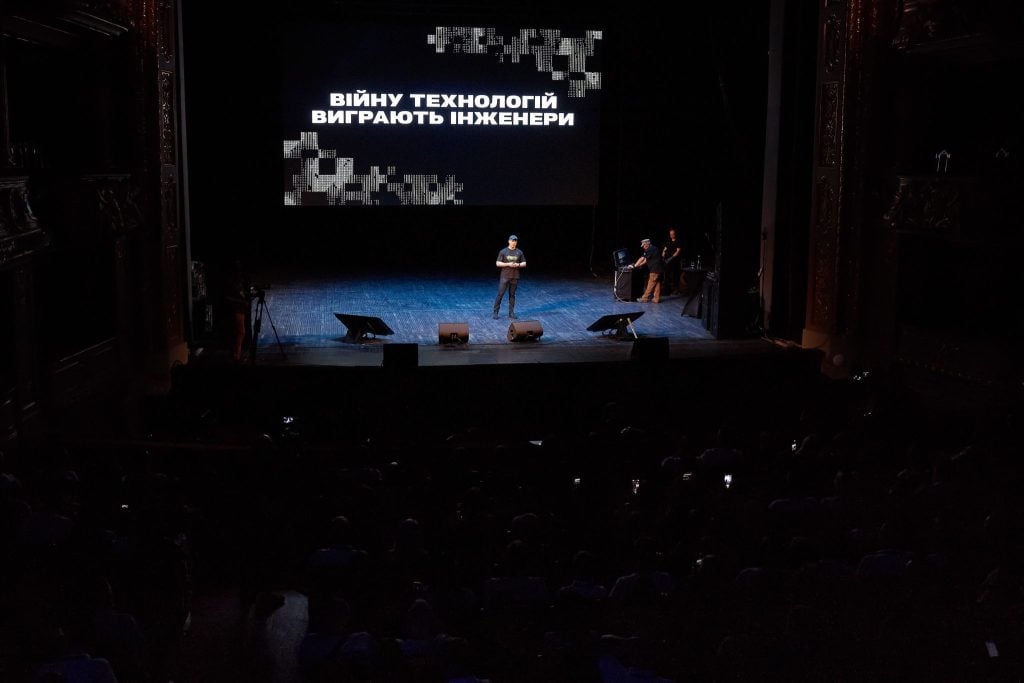
The conflict, unfortunate as it is, also accelerated this trajectory for Ukraine to become a hub for defense innovation, and according to domestic entrepreneurs, this is an opportunity that the country needs to grab fast – first to win the war, and then to further develop this sector of the tech industry.
“Every technology offers opportunities to make a breakthrough that can turn the course of this war. If we had a thousand drones simultaneously attacking a bridge and each company can make hundreds of drones, that would be all very simple,” Fedorov said during a presentation at IT Arena 2023 about the various tech solutions that the country has been implementing during the war.
And here, as the Ukrainian official further explained, is a potential that the country has to further exploit.
Fostering defense tech innovation through experience from the frontline
Since its official launch in April this year, the Brave1 cluster has become the epicenter of Ukraine’s defense tech landscape. Spearheaded by seasoned entrepreneur Nataliia Kushnerska and her team, the goal for Brave1 is to connect the diverse elements of this ecosystem – ranging from companies and startups to government agencies, defense forces, and investors.
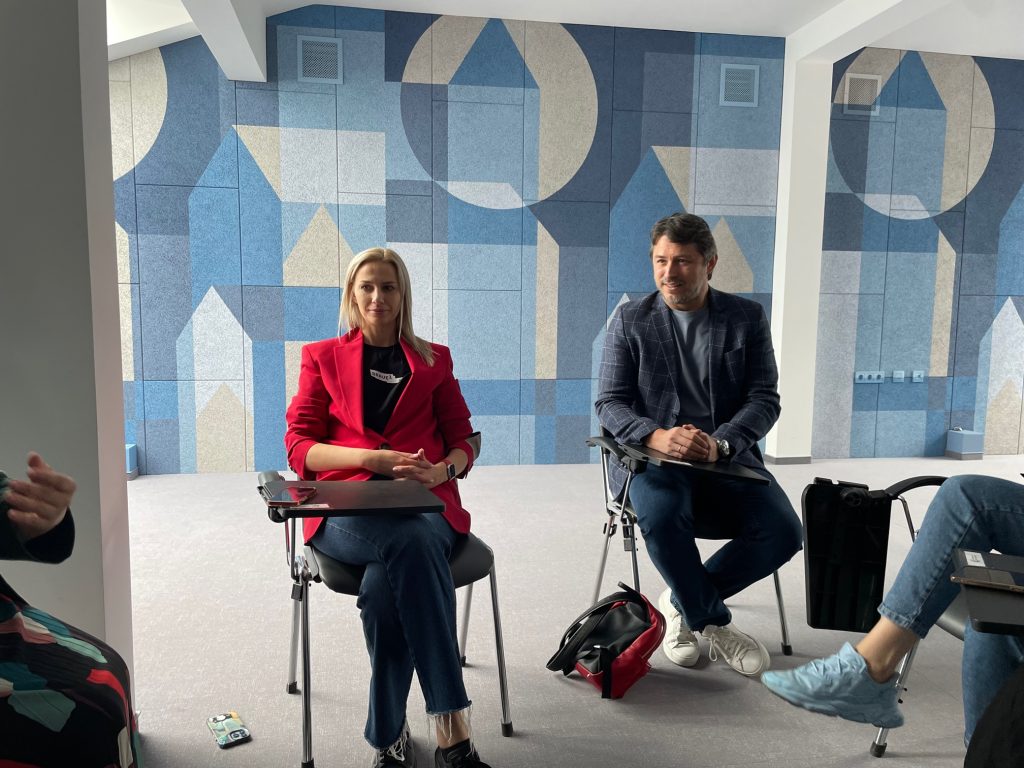
Their mission is clear: to transform Ukraine into a Silicon Valley for defense technology – with one of the unique aspects being innovation originating from the frontline itself.
“A lot of solutions appear on the frontline through private funding because sometimes startups are not donating money, but they’re actually solutions from the frontline. We’ve seen a lot of such solutions, and they’re really effective. And one of our missions was actually to get all those effective solutions that are already on the frontline and to get them to the Ministry of Defense for acquisition and procurement procedures,” Kushnerska, who acts as Brave1’s COO, tells The Recursive.
As she further explains, navigating this intersection of business and military interests is no small feat, and despite these challenges, the collaboration between Brave1 and the country’s Ministry of Defense is streamlining the development of both the solutions and startups that are behind them.
With a particular focus on drones, demining, electronic warfare and AI, the cluster has seen 575 submitted solutions, with half of them getting a BRV1 status for further development. The cluster has also given out 54 grants for startups, worth close to $1 million.
Mantis Analytics, a deep tech startup that develops an AI-driven information field monitoring platform, was one of the winners of the defense tech track, securing a $200K investment from an angel investor.
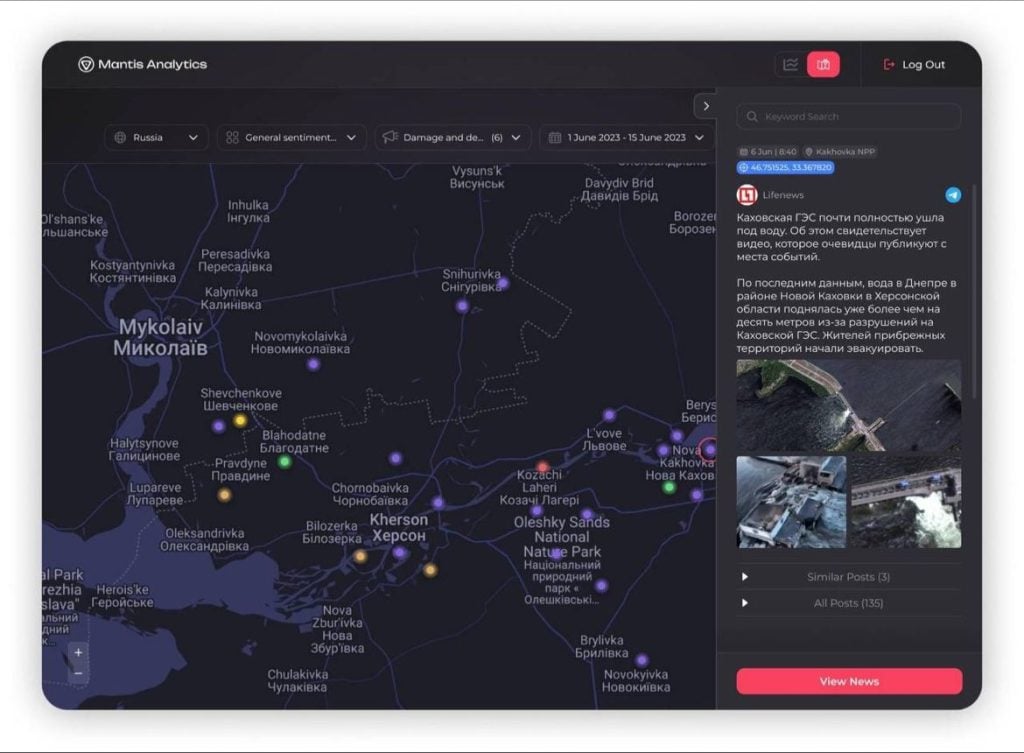
“We are a startup engaged in the detection and analysis of disinformation and information attacks with the help of artificial intelligence. We were born as a volunteer initiative at March 2022, after the full-scale invasion of Russia, when a team of talented people from the IT sector decided to somehow help Ukraine. During the previous year, we have helped the government, think tanks, journalists and other agents of information war to protect the Ukrainian information landscape from Russia’s malicious activities,” Mantis Analytics’ co-founder Anton Tarasyuk tells The Recursive.
Now, there are many more startups that are already developing solutions and R&D centers on the frontline.
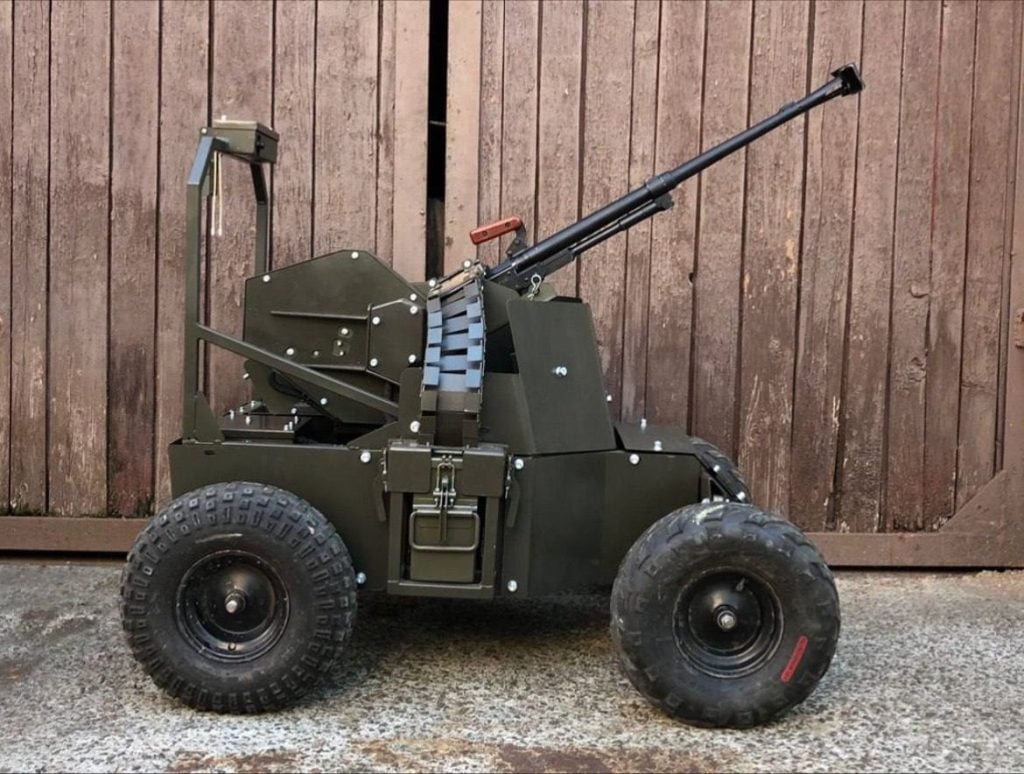
“Engineers are on the field and now we are here as their state representatives and state partners, and ready to give all our help and support. We’ve had proven and tested, not only drones, but other platforms as well. We see naval drones as well as we see how game changing they are. We already have Ukrainian drones with AI solutions in it, a lot of communication solutions and it is very inspiring to see how fast and effective these companies are,” Kushnerska explains.
Crowdfunding that leads to drones and satellites
Since the Russian invasion in 2014, initiatives such as the Serhiy Prytula Foundation have been at the forefront of volunteer efforts, raising funds to supply the Ukrainian military with essential resources.
What began as a personal initiative for entrepreneur and former TV host Serhiy Prytula, has now evolved into a nationwide endeavor, making a significant impact on both the military and civilian communities affected by the conflict.
In response to the intensified Russian aggression in 2022, Prytula took his charitable efforts to new heights. The Prytula Foundation has since provided over approximately 140 million dollars worth of non-lethal equipment to the Defense Forces of Ukraine, in the form of drones, optics, vehicles, communication systems, and tactical medical equipment for frontline soldiers.
“During the previous year we bought a number of FPV drones and UAVs. And the next step, what we’re waiting for is drones that will help to hit targets more effectively, because the main trouble of any kind of drones or UAVs is the communication systems. So very often we can see some videos of our defenders trying to strike a target, but they lose connection. So, we are waiting for drones working with optical devices that catch the target and it won’t matter if the connection was lost or not, because the drone will hit the target,” Prytula tells The Recursive.
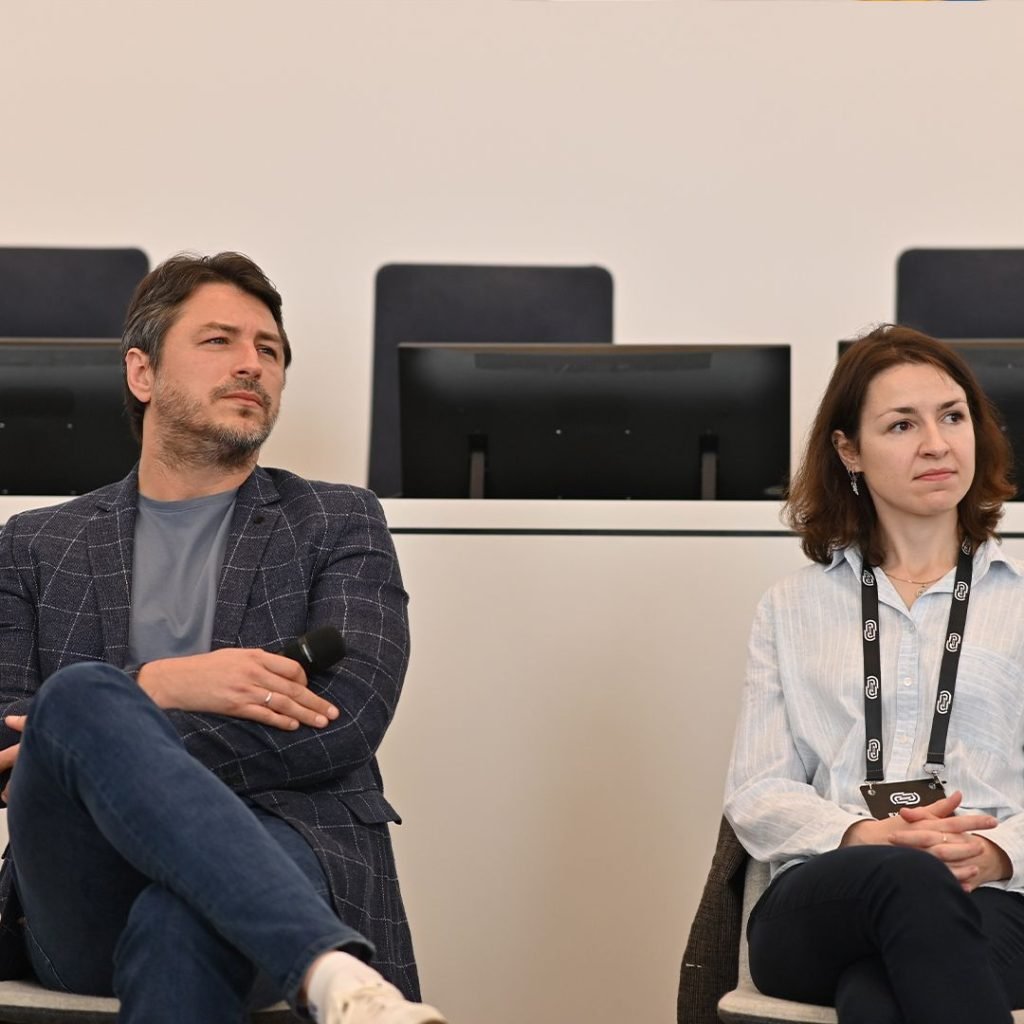
Its biggest project was the People’s Satellite, an ICEYE satellite that was bought by a massive crowdfunded effort that the Foundation led, and that has been very helpful for Ukrainian defenses during the past year and a half.
“We also bought access to a database of satellite pictures of all constellations of ISL companies, which amounts to 13 which are exactly working on Ukraine every day. So that’s why we pay for the satellite and we also pay for the access and they have good results with this case, because they have a lot of satellite pictures,” Prytula added.
According to him, such projects also illustrate how Ukraine can use all of this new experience and become a defense tech hub, and that now this is down to all of the key stakeholders to make this promise a reality.
“The government and businesses need to do everything just to show to our investors that we are transparent, because they are already very afraid – some of those investors still think about Ukraine as a corrupted state. That’s why from our side, as civil society, we need to explain to every single one of them about what we’re doing and why it’s important for us to move forward. We need to show to our partners that they shouldn’t be afraid to invest in Ukrainian military tech and our R&D,” Prytula tells The Recursive.
The importance of education for technological innovation
The Boryviter Military School has emerged as one of the institutions that have been strengthening Ukraine’s defense capabilities. The organization’s primary goal is to enhance the qualifications of Ukrainian service members, focusing on intensive training in eight crucial areas, including UAVs, military communications, and psychological training among others.
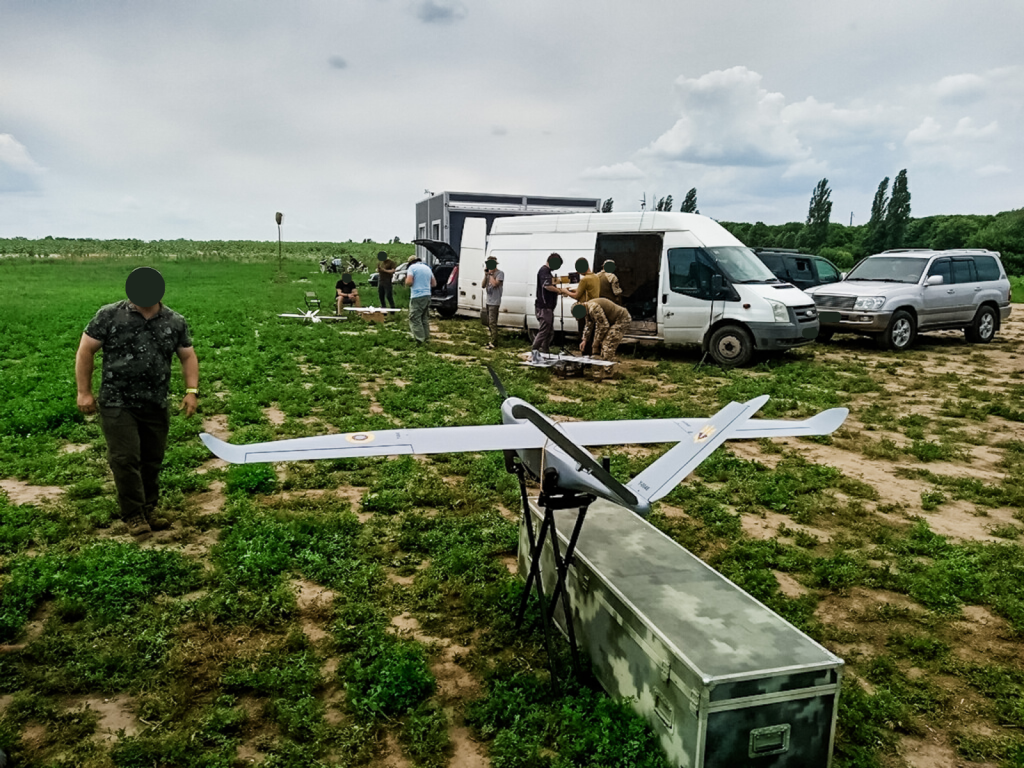
Most of the Boryviter’s training programs are based on NATO standards and adapted to current combat operations, with the school already having trained over 14,000 students.
According to the school’s founder Tetiana Ostra, the past year and a half has seen Ukraine becoming the “fork of drones, artillery, modern technologies and innovations”.
“I would definitely say that drones are still one of the most important focuses that we have right now. Second, there is electronic warfare – the Russians are really good at this, and we have to catch up. This is where we’re seeing a lot of startups and it is something that really still needs more focus and innovation, as well as with situational awareness systems. Whenever I talk to my partners and friends from defense agencies abroad, they are sincerely surprised by how we manage battle management systems – you can have a digital map and see all of your forces, the enemy forces, the movement between missiles flying over drones used in enacted combat, and this is something that will bring us more efficiency in the battlefield,” Ostra says.
The school has also seen a number of entrepreneurs and engineers becoming a part of its team, which further helps its students get the necessary knowledge.

“We have people who left their jobs behind – one guy was a CTO in an international company, and he came back. We have engineers, we have high level IT developers and they really believe in this cause. They know that after the victory they can go back to their civilian job, but now they’re accumulating all of this experience and we are using their expertise and knowledge to make sure that we can also start producing something that can provide support for the defense sector,” she points out.
What Ukraine needs to do next according to Ostra, is to leverage the accumulated knowledge and experience and to establish itself as a center of excellence.
“The lessons learned that we gain from conflict can be the best practices and we can also share the common mistakes with other NATO member states that have been supporting us so that we are partnering and strengthening the Alliance. We can make sure that the doctrines are modernized, that the training is up to date, and we can become a great R&D hub for all kinds of innovations.” she concludes.








